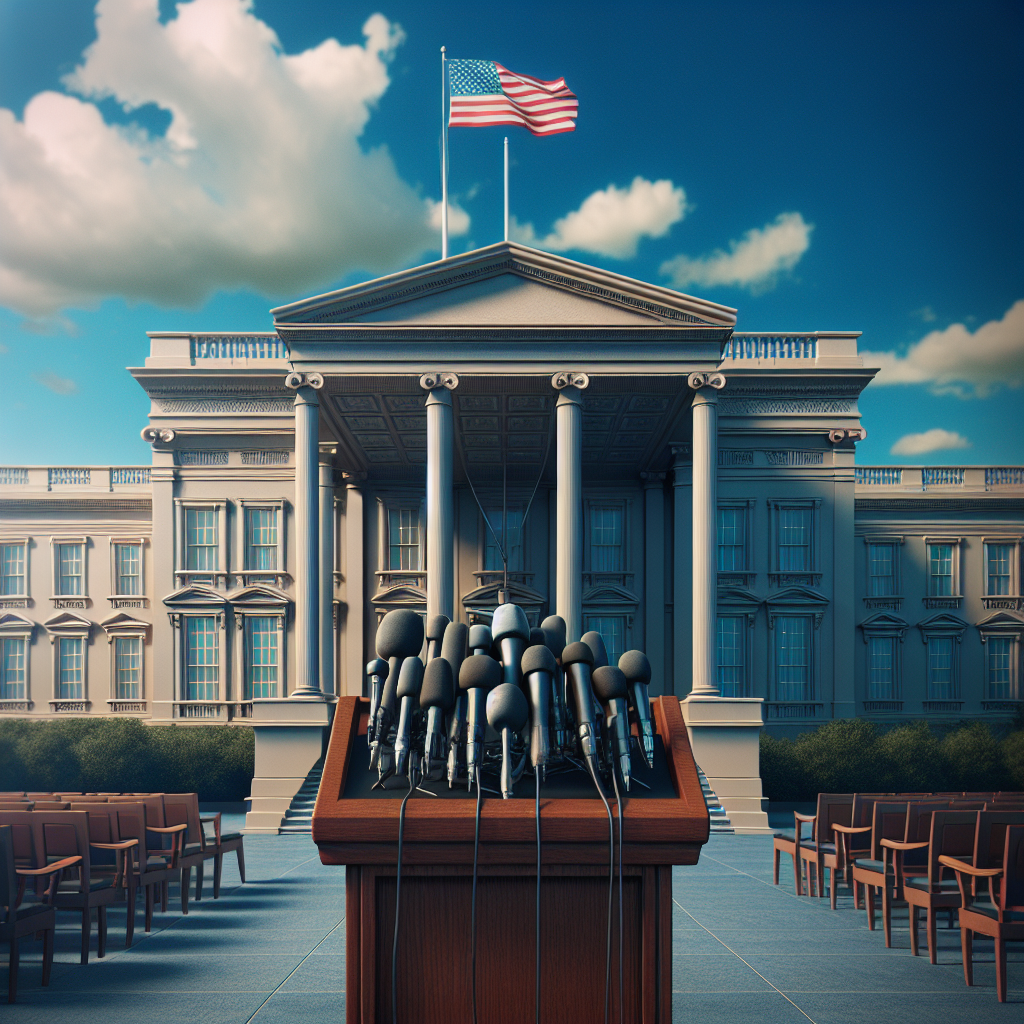
Understanding the Escalating Tensions: Trump vs. Zelenskyy Amid Ukraine’s Ongoing Conflict
In the political landscape that straddles both Washington and Kyiv, recent developments have put the spotlight on the tense relations between the United States and Ukraine. The issues flared markedly when a planned news conference following discussions between Ukrainian President Volodymyr Zelenskyy and U.S. President Donald Trump’s Ukraine envoy was abruptly canceled. This occurrence has fueled speculations about the future of U.S. support for Ukraine amid the ongoing war with Russia.
The Canceled News Conference: A Reflection of Intensifying Tensions
Initially, the press conference was supposed to feature statements from both Zelenskyy and retired U.S. Lt. Gen. Keith Kellogg. However, the scope was reduced to a photo opportunity. As Ukrainian presidential spokesman Serhii Nikiforov explained, this unexpected change was at the request of the U.S., highlighting a diplomatic strain between the two nations.
Implications of Political Frictions
- Personal Rifts: The incident underscores personal frictions between Trump and Zelenskyy, which have manifested in public rebukes. Trump’s recent accusations labeling Zelenskyy as a “Dictator without Elections!!” have intensified the diplomatic row.
- International Involvement: Germany’s Chancellor Olaf Scholz and UK’s Prime Minister Keir Starmer have thrown support behind Zelenskyy, asserting his democratic legitimacy despite Trump’s critical remarks.
- Russia’s Role: The developments further complicate international efforts to resolve Ukraine’s conflict with Russia, as the U.S. pivot towards engaging with Russia without consulting Ukraine or its European allies has added to Kyiv’s frustrations.
The Broader Context: U.S. Foreign Policy and Ukraine’s Response
The diplomatic strain comes against the backdrop of ongoing negotiations aimed at resolving the war in Ukraine. Trump’s strategy, which marks a deviation from the established U.S. policy towards Russia, has caught Ukraine off guard, considering Kyiv was excluded from involved discussions.
Economic and Military Considerations
- U.S. Support: The U.S. has been a significant supporter of Ukraine in terms of military assistance, making relations with Washington vital for Kyiv’s ongoing defense against Russian aggression.
- European Allies: European nations like Germany have been instrumental in supporting Ukraine both economically and militarily, which amplifies the need for collaborative decision-making among allies.
- Strategic Diplomacy: An equitable resolution involves not just a ceasefire but also a consensus on mitigating Russian aggressions while respecting Ukraine’s sovereignty, which involves multilateral discussions including key EU states.
Analyzing Trump’s Diplomatic Approach
President Trump, guided by an “America First” philosophy, has dictated a pivot in foreign policy where direct engagements with Russia might not feature Ukraine as a principal actor. This has provoked critical dialogues about the efficacy and implications of such a diplomatic approach.
Possible Motivations
- Reassessment of Strategy: Inviting Russian negotiations possibly manifests an attempt by Trump to recalibrate the U.S.–Russia dynamic, though at the possible cost of undermining traditional alliances.
- Political Repercussions: Trump’s rhetoric and approach have led to a mixed reception both domestically and internationally, affecting how future policies might be drafted in terms of bilateral and multilateral cooperation.
The European Perspective: Support and Criticism
European countries, as steadfast supporters of Ukraine, have criticized the sidelining of Ukraine in pivotal discussions with Russia. Chancellor Scholz has emphasized the critical role of democratic processes and hammered home the necessity of international unity in supporting Kyiv’s defense measures.
Solidarity with Ukraine
- Diplomatic Backing: European leaders are unanimously advocating for the restoration of Ukraine’s territorial integrity and supporting democratic processes within Ukraine.
- Condemnation of Russian Actions: The European response has consistently condemned the Russian invasion, marking Moscow’s military aggression as unprovoked and unjust.
Facing the Ongoing Conflict: Ukraine’s Resilience
Despite the clamor of diplomatic disputes, the harsh reality is the continued military engagement on Ukrainian soil. Recent Russian strikes with drones and missiles have aggravated the human toll and infrastructure damage, stressing the urgency for resolving the conflict.
Civilian Impact and Military Updates
- Humanitarian Crisis: As winter grips the region, strikes have left significant civilian populations without essential services, leading to a humanitarian emergency exacerbated by continual military assaults.
- Defensive Strategies: Ukraine has sustained robust defenses aided by international military assistance, highlighting its resilience and determination to resist Russian advances despite diplomatic uncertainties.
The unfolding events underscore critical geopolitical dynamics, emphasizing the need for cohesive international cooperation while addressing both the diplomatic and humanitarian components of the conflict. As stakeholders navigate this complex scenario, the priority remains the restoration of stability and peace in Ukraine without compromising its sovereignty or democratic fabric.
Sources: https://www.pbs.org/newshour/politics/watch-live-white-house-holds-briefing-as-trump-calls-ukrainian-president-zelenskyy-a-dictator

